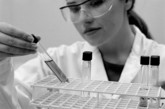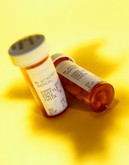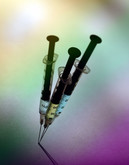Biosimilars/Research
|
Posted 05/02/2010
In a study by Christopher Griffiths et al. of the University of Manchester, UK, Johnson & Johnson (J&J)’s monoclonal antibody STELARA (ustekinumab, an interleukin-12 and interleukin-23 blocker) and Amgen’s Enbrel (etanercept, an inhibitor of tumour necrosis factor: anti-TNF) have been compared for the treatment of psoriasis, as published in The New England Journal of Medicine (NEJM) of 14 January 2010. The Phase 3, Multicenter, Randomized Study Comparing CNTO 1275 and Etanercept for the Treatment of Moderate to Severe Plaque Psoriasis’ was sponsored by J&J’s Centocor.




























